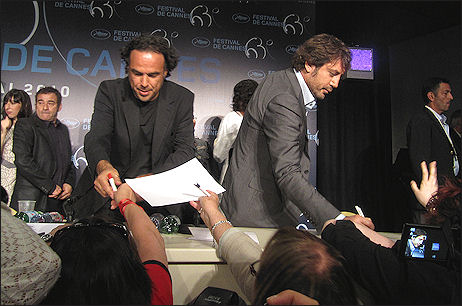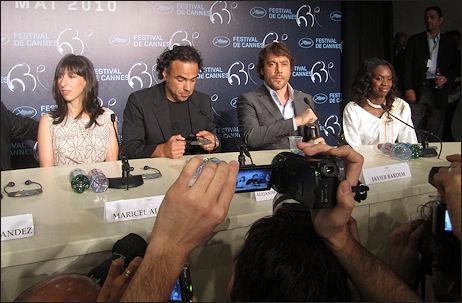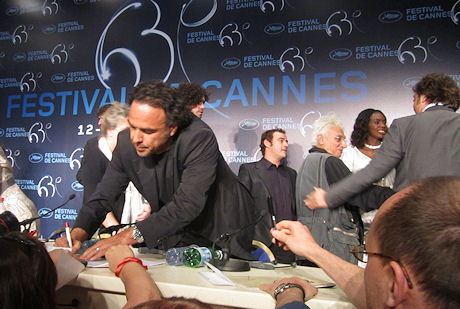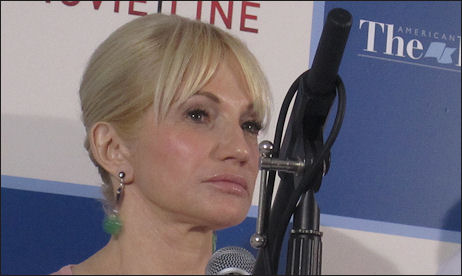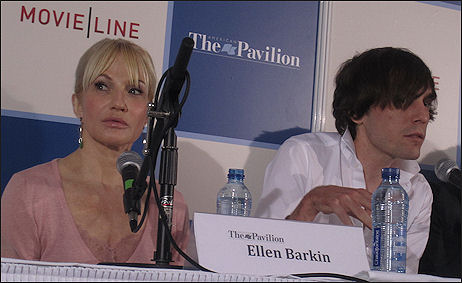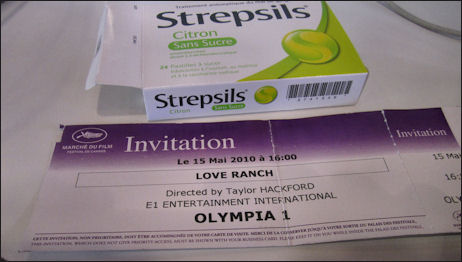Abbas Kiarostami‘s Copie Conforme (a.k.a., Certified Copy) is what most hot-dog-eating humans on the planet earth would call a “dead movie.” You know…a movie with lofty pretensions and perhaps an echo or two of Yasujiro Ozu that nonetheless lacks a discernible pulse because the director-writer has crawled so far up his own ass that he doesn’t know the difference between real sunlight and imaginings of same?
However, if you’re a member in good standing of Film Dweeb Nation, a presumably human but possibly alien culture which tends to favor and in some cases worship the imaginations of sunlight found in anal cavities, you’ll stroll into the Orange press cafe just after the screening of Copie Conforme, like a certain British journalist did 20 or 25 minutes ago, and go “oh, I loved it!” I looked at this guy incredulously and said, “Hold up, let me get this straight. You didn’t like the Inarritu [i.e., Biutiful] but you liked Copie Conforme?”
During such moments you have to step back, take a breath and just go “okaaaay.” Or, as James Rocchi has been known to say, “What do I know?”
Certified Copy is a two-character endless dialogue movie set in and around San Gimignano, Italy — one of the worst places in the world, incidentally, because of the busloads of horribly-dressed Middle-American tourists that flood this city during tourist season.
The characters are James (William Shimell), a self-centered, snooty-fuck writer with carefully cut gray hair who has a little free time after discussing his new book before a small book-store group, and an attractive French-speaking woman (Juliette Binoche) with a 12 year-old, self-absorbed, pain-in-the-ass son who needs to be taken out behind the woodshed, have his pants and underwear pulled down and whipped with a leather strap.
James and whatsername meet and decide they half-like each other, and about 30 or 35 minutes later decide to start pretending they’re husband and wife. The game gradually becomes darker and darker, and before you know it you’re not entirely convinced they weren’t playing a game to begin with. But the idea — one created by dweebs, aimed at dweebs and certain to be endlessly discussed by dweebs — has something to do with determining the natures of games vs. reality, originality vs. forgeries, truth vs. imagination and so on.
I didn’t hate every minute of it. It is informed by a certain purity of mood and technique and mise en scene — always the mark of exceptional high-end filmmaking. I was half-engaged at first, but common sense disengaged me within 45 or 50 minutes. And yet I stuck it out to the end. I stood, I sat, I leaned against a wooden panel. And people were booing as the end credits appeared.



